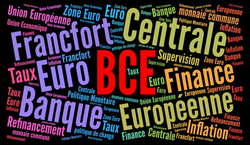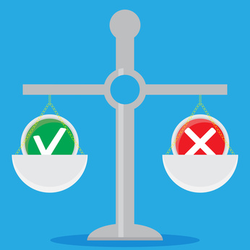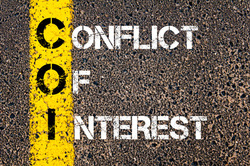Compliance and Regulation Law bilingual Dictionnary

Capture is a term usually used in economic theories and refers to the situation in which an institution, in particular the Regulatory Authority, loses its independence by the influence exerted by a third party on it. The extreme case of capture is corruption, whereby an operator appropriates the decision-making power of the public Autority. But capture by corruption is paradoxically not the most dangerous situation, although under Criminal Law, for it is the most visible and - if the whole economic system is not corrupt - this corruption can be combated, for example by the change of those who govern the regulatory authority. Capture is more problematic when it is insidious. Thus, the sector can capture the Regulator by compromise when the people who are in the companies are the friends of the people who are in the regulatory authorities, for example when they have at the time of their studies attended the same schools, or when they later frequented the same clubs, practiced the same sports, or else when they were in their careers went from regulatory institutions to business and vice versa by the way, through consulting or lawyers firms.
In addition, capture can be done not by maneuvering on men but on things. Indeed, to capture the Regulator , it is necessary but it is enough not to give him the information that he needs, or to give the bad information to him. The asymmetry of information increases the risk of the regulator's capture, which explains why the financial Regulator is particularly exposed. Thus, the more technical the sector is, the more likely it is that the Regulator will be caught (for example in nuclear matters, where defense secrecy is opposed to the very idea of information, without the idea of morality of humain beings ou the idea of corruption necessarily interfere).
However, if the Regulator is captured by the sector, the regulatory system itself collapses. The function of the Regulator is to control the sector on an ongoing basis, in order to take ex ante the appropriate norms or issue an opinion in this respect and to punish in ex post the breaches that the regulatory body has been able to establish, but its capture prevents this office from being fulfilled. This is why the capture of the Regulator is the obstacle that annihilates the entire Regulatory system.

A Central Bank is for the Law a rather mysterious object.
Despite what some competition authorities have said, it is not an ordinary bank. It is at the root of monetary creation and its primary mission is to fight against inflation, contributing more or less directly and in a more or less independent way according to political and legal systems to the economic policy pursued by governments.
Thus, while central banks all have constitutional status which guarantees autonomy, they have a more limited mission in Europe than in the United States. This is even more evident since monetary cre - ation has been transferred to the European Central Bank (ECB), which makes it even more necessary to interpret what the Central Bank can do, Reminded the Court of Justice of the European Union (CJEU) in 2015 of the ECB's non-conventional monetary policy programs.
The central bankers either directly by a department or indirectly by an independent administrative authority (IAA) backed by them and who, although independent, have no legal personality with regard to them ( for example in the French system concerning the " Autorité de contrôle prudentiel et de resolution - ACPR) exercises regulatory and supervisory powers over the banking and insurance sectors.
As such, they are regulators. When en Europe the power to create money has been taken away from them, passing from the Member States to the European Central Bank (ECB) through the Euro Zone, it is this regulatory and supervisory power which remains their own, their mission being only to participate in the European collective mechanism.
But for exercising its regulatory and supervisory role, the central bankers have considerable powers, including approval, sanction and, since 2013 and 2014, resolution. But in this respect it must be considered that, in particular with regard to the European Convention on Human Rights, central bankers are like courts and in the exercise of numerous powers, procedural guarantees must be conferred on operators who are the object of those powers.

Regulation has historically been built on the idea of a sector, for example telecommunications, energy, rail, banking, audiovisual etc. This was linked to the fact that the regulations were thought by Europe and more particularly the European Commission as a means of establishing effective competition in a process of liberalization of sectors.
But that was to think excessively about regulation over competition, that is, regulation as a means of building competition. In fact, regulation can be today, in a primary way, a means of preventing crises and managing risks, as well as a means of long-term management of goods and services that do not support the instantaneousness of markets, even led to competitive maturity.
However, in this second perspective, the risks are in no way confined to a sector. On the contrary, they move from one sector to another. Likewise, a good, over time, passes from one sector to another. Thus, the time has come to qualify the thought of regulation in relation to the sector and to conceive the regulation in relation to the movement of goods that do not only move in a flat way on markets but also in chains within which they develop, which supposes long-term planning (as in energy matters), and in which they carry risks with them, which confinement in a sector does not make it possible to manage.
Thus, the contamination of the banking risk inflamed the financial sector and the insurance sector in a manner as devastating as does a health risk ranging from the water sector to that of food, medicine, etc. the same way that data moves from the television sector to the telephone sector, to the digital sector.
Moreover, agriculture, whose regulation is still very poorly thought out, except for an old report on the “timber industry”, shows that the good goes from the purely agricultural sector to the food sales or pharmaceutical production sector, themselves. regulated without connection. The agricultural organizations spontaneously coordinated to integrate this reality of the chains.
If we better integrate this reality of the chains, which corresponds to the way in which risks spread, a major issue of regulation, a dimension that has nothing to do with competition, we would have to disconnect regulation from its strict link with the notion of sector, or at least, better organize interregulation.

The expression is always left in the English language even when it is used in other languages because it is not translatable. It refers to the basic institutional and political mechanism of the American system. Regulatory theorists and practitioners often refer to it as the right political and institutional framework on which to base an economic organization of Regulation. This would mean a need to reform the political systems built on another mode of separation of powers.
This strong basis conforts the fact that the system of Regulation is not neutral, it is the reflection of a political organization.
The shock between these different philosophical and political conceptions explains why economic regulation has been difficult to accept in Europe, and especially in France for a long time. Indeed, according to the French political scheme resulting from the Revolution, there are two powers: the executive and the legislative, the judiciary being only an authority. The executive is built on the hierarchical principle of which the head is constituted by the government, any administration ultimately coming from a minister. It is therefore a vertical system, which has the merit of simplicity. Regulatory authorities have been imposed by European directives since the 1990s, in the form of bodies which may be administrative and Under this title of the State but must be necessarily independent of the government from the moment that operated on the market of the public enterprises which also obeyed the government through the theory of the state shareholder.
Le choc entre les deux conceptions philosophiques et politiques explique que la régulation économique ait eu du mal à être acceptée en France pendant une longue période. En effet, selon le schéma politique français issu de la Révolution, il existe deux pouvoirs : l’exécutif et le législatif, le judiciaire n’étant qu’une autorité. L’exécutif est construit sur le principe hiérarchique dont la tête est constituée par le gouvernement, toute administration relevant finalement d’un ministre. Il s’agit donc d’un système vertical, qui a pour lui le mérite de la simplicité.Les autorités de régulation ont été imposées par des directives européennes à partir des années 90, sous la forme d’organes pouvant être de nature administrative et relevant à ce titre de l’État mais devant être nécessairement indépendants du gouvernement dès l’instant qu’opéraient sur le marché des entreprises publiques qui elles aussi obéissaient au gouvernement à travers la théorie de l’État-actionnaire.
This is the fundamental European rule of the impossibility of cumulation of the regulatory / operator state, a situation constituting a conflict of interests. The French State, which intends to remain owner of public operators, in particular EDF, has preferred to relax control of regulation by creating independent administrative authorities (AAI).
Consequently, the vertical model of the hierarchy of the executive has been disrupted since these authorities no longer report (as free electrons) of it. For them to be held accountable, judicial review of the authorities through appeals has been increased. In the same way, through public reports to Parliament, the IAAs began reporting directly to the IAA. The political model becomes horizontal.
This then refers to a completely different tradition: that of the United States. Indeed, in the United States, the executive (the White House) has both the Parliament (the Congress) and a very powerful judiciary (the Supreme Court); No one has taken over the others, each however being able to hold the others accountable. This is called Check and Balance. Not least because the Regulation has been institutionalized by economists who, through the current Law and Economics, have perceived what they consider to be the most appropriate right as American law, which must impose itself almost "by nature".
Thus, through this small corner in the door that is the institutional reform introduced by regulation, the French political system evolves towards this American system of check and balance, being observed that the United States were the first historically to put in Regulators. This rapprochement of the systems can be carried out all the more so as in Europe the organs in charge of the control of the constitutionality control do not stop increasing in power. Thus, in France, since the constitutional reform of 23 July 2008, the Constitutional Council can assess the constitutionality of laws not only before their promulgation but even when they have entered the legal order, It is becoming a "Supreme Court" on the American model.
The political models remain very different, in particular because the French Parliament does not have the same blocking power as the US Congress, and the Constitutional Council does not have the same doctrinal power as the US Supreme Court. Leaves France in the place of a presidential system virtually without balance, face to face Regulators and the system of the European Union, Europe more and more a Europe of Regulation.

The notion of "Common Goods" refers to a political conception insofar as it concerns objectively commercial goods such as cultural goods or medical services, but which the community is going to demand that everyone should have access to it even though the individual does not have the ability to pay the exact price. It is then the taxpayer - present or future - or the social partners who bear the cost, or even some companies, through the corporal social social responsibility mechanism.
This protection of Common Goods can be done by the State in the name of the interest of the social group for which it is responsible and whose it expresses the will, particularly through the notion of the general interest. In this now restricted framework which is the State, this reference runs counter to the principle of competition. This is particularly clear in Europe, which is based on a Union built on an autonomous and integrated legal order in the Member States in which competition continues to have a principled value and benefits from the hierarchy of norms. The evolution of European Law has balanced the principle of competition with other principles, such as the management of systemic risks, for example health, financial or environmental risks and the creation of the banking union shows that the principle of competition is no longer an apex in the European system.
But it still remains to an economic and financial conception of Europe, definition that the definition of the Regulatory Law when it is restricted to the management of the market failures feeds. It is conceivable that Europe will one day evolve towards a more humanistic conception of Regulatory Law, the same one that the European States practice and defend, notably through the notion of public service. Indeed and traditionally, public services give people access to common goods, such as education, health or culture.
Paradoxically, even though Law is not set up on a global scale, it is at this level that the legal notion of "common goods" has developed.
When one refers to goods that are called "global goods", one then seeks goods that are common to humanity, such as oceans or civilizations. It is at once the heart of Nature and the heart of Human Being, which plunges into the past and the future. Paradoxically, the concept of "global goods" is still more political in substance, but because of a lack of global political governance, effective protection is difficult, as their political consecration can only be effective nationally or simply declaratory internationally. That is why this balance is at present only at national level, which refers to the difficulty of regulating globalization.
Thus, the "common goods" legally exist more under their black face: the "global evils" or "global ills" or "global failures", against which a "Global Law" actually takes place. The notion of "global evils" constitutes a sort of mirror of Common Goods. It is then observed that countries that develop legal discourse to regulate global evils and global goods thus deploy global unilateral national Law. This is the case in the United States, notably in financial regulatory Law or more broadly through the new Compliance Law, which is being born. Companies have a role to play, particularly through Codes of Conduct and Corporate Social Responsibility.

Competition is the law of the market. It allows the emergence of the exact price, which is often referred to as "fair price". It means and requires that agents on the market are both mobile, that is to say free to exercise their will, and atomized, that is to say, not grouped together. This is true for those who offer a good or service, the offerers, as well as for those seeking to acquire them, the applicants: the bidders seek to attract the applicants so that they buy them the goods and services that they propose. Bidders are in competition with each other.
In the competitive market, buyers are indulging in their natural infidelity: even if they have previously bought a product from an A supplier, they will be able to turn away from him in favor of a B supplier if the latter offers them a product more attractive in terms of quality or price. Price is the main signal and information provided by the suppliers on the market to excite this competitive mobility of the offerers. Thus, free competition accelerates market liquidity, the circulation of goods and services, raises the quality of products and services and lowers prices. It is therefore a moral and virtuous system, as Adam Smith wanted, a system which is the fruits of individual vices. That is why everything that will inject "viscosity" into the system will be countered by Competition Law as "non-virtuous": not only frontal coordination on prices but for example, exclusivity clauses, agreements by which companies delay their entry on the market or intellectual property rights which confer on the patentee a monopoly.
Admittedly, Competition Law can not be reduced to a presentation of such simplicity, since it admits economic organizations which deviate from this basic model, for example distribution networks or patent mechanisms on which, inter alia, is built the pharmaceutical sector. But the impact is probative: in the sphere of Competition Law, if one is in a pattern that is not part of the fundamental figure of the free confrontation of supply and demand, he has to demonstrate the legitimacy and efficiency of its organization, which is a heavy burden on the firm or the State concerned.
Thus, in the field of Regulation, if regulatory mechanis were to be regarded as an exception to competition, an exception admitted by the competition authorities, but which should be constantly demonstrated before them by its legitimacy and effectiveness in the light of the "competitive order", then public organizations and operators in regulated sectors would always face a heavy burden of proof. This is what the competition authorities consider.
But if we consider that regulated sectors have a completely different logic from competitive logic, both from an economic and a legal point of view, the Law of Regulation refers in particular to the notion of public service and having its own institutions, which are the regulatory authorities, then certain behaviors, in particular monopolies, are not illegitimate in themselves and do not have to justify themselves in relation to the competitive model, for they are not the exception ( Such as the public education or health service).

"Compliance" is the typical example of a translation problem.
Indeed and for example, the term "Compliance" is most often translated by the French term "Conformité". But to read the texts, notably in Financial Law, "Conformité" is aimed rather at professional obligations, mainly aimed at the ethics and conduct of market professionals, especially service providers of investment. It is both a clearer definition in its contours (and in this more certain) and less ambitious than that expressed by the "Compliance". It is therefore, for the moment, more prudent to retain, even in French, the expression "Compliance".
The definition of Compliance is both contentious and highly variable, since according to the authors, it goes solely from the professional obligations of financial market participants to the obligation to comply with laws and regulations. In this latter sense, that is, the general obligation that we all have to respect the Law. To admit that, Compliance would be Law itself.
Viewed from the point of view of Law, Compliance is a set of principles, rules, institutions and general or individual decisions, corpus of which the primary concern is efficiency, in space and in time. The purpose is to put into practice general interest goal targeted by these gathered techniques.
The list of these goals, whether negative ("fighting": corruption, terrorism, embezzlement of public funds, drug trafficking, trafficking in human beings, organ trafficking, trafficking in poisonous and contagious goods - medicines, financial products, etc.) or positive ("fighting for": access to essential goods for everyone, preservation of the environment, fundamental human rights, education, peace , transmission of the planet to future generations) shows that these are political goals.
These goals correspond to the political definition of the Regulatory Law.
These political goals require means which exceed the forces of the States, which are also confined within their borders.
These monumental goals have therefore been internalized by public authorities in global operators. The Compliance Law corresponds to a new structuring of these global operators. This explains why the new laws put in place not only objective but structural repressions, as in France the "Sapin 2 Law" (2016) or the "obligation of vigilance Law" (2017) .
This internationalization of the Regulatory Law in companies implies that the public authorities now supervise the latter, even if they do not belong to a supervised sector, or even to a regulated sector, but participate, for example, in international trade.
The Law of Compliance thus expresses a global political will relayed by this violent new Law, most often repressive, on companies.
But it can also express on the part of the operators, in particular the "crucial operators" a desire to have themselves concern for these monumental global goals, whether of a negative or a positive nature. This ethical dimension, expressed in particular by the Corporate Social Responsibility, is the continuation of the spirit of the public service and the concern for the general interest, raised world-wide.

Compliance is a concept born mainly in the United States and it is difficult to translate it, for instance into French, as the term "conformité" is not entirely adequate. Compliance is not only the obligation of certain professionals, such as investment service providers (ISPs) to comply with their professional obligations, nor does it extend to the general obligation to comply to all laws and regulations, this obligation to submit to the Law targeting all persons and characterizing the very power of Law.
Compliance is rather the internalization in some companies of specific obligations, resulting from regulatory systems. Thus compliance consists in internalizing the regulatory systems themselves in operators. In order to ensure the effectiveness of this internalization, the companies in question become transparent, the Regulator, or even the criminal judge, who can permanently and in Ex Ante check the proper functioning of the company for the implementation of the rules. The supervision of the company thus allows the effectiveness of the internalization of regulation in the company.
The company is then forced, including by criminal law, to use its power to achieve goals that are a priori external to it, such as the fight against money laundering, the fight against international terrorism and even the protection of human rights. The State thus enacts the aims and the enterprise implements them, the State having the legitimacy to do so but being too weak, in particular because it is enclosed within its borders, the enterprise having the power to do so.
This implies that compliance refers only to a very specific and legally new category of companies: companies with an international activity and having the power to structure themselves to achieve their goals. Law constructs a companie duty to structure itself in this sense: compliance is inseparable from governance.
But these companies thus newly constrained by the consideration by the Law of the globalization do not remain passive. They are actively involved in the normative creation of compliance and, in particular, through ethical charters and codes of conduct, demand the issuance of standards of behavior for all persons who depend on them, both internally and externally, A new culture of compliance, in which respect for meaning is essential and goes beyond the technical differences between legal systems. The emergence of a Global Law can take this path.

Paradoxically, the notion of conflict of interest seems to be at the center of Economic Law only recently in Economic Law, in both Corporate and Public Law. This is due to the philosophy which animates these two branches of Law, very different for each, and which has changed in each.
In fact, and in the first place in Public Law, in the Continental legal systems and especially in French legal tradition, on the side of the State, the one who serves it, by a sort of natural effect,, makes the general interest incarnated by the State pass before its personal interest. There is an opposition of interests, namely the personal interest of this public official who would like to work less and earn more, and the common interest of the population, who would like to pay less taxes and for example benefit trains that always arrive on time and the general interest which would be for example the construction of a European rail network.
But this conflict would be resolved "naturally" because the public official, having "a sense of the general interest" and being animated by the "sense of public service", sacrifices himself to serve the general interes. He stays late at his office and gets the trains on time. This theory of public service was the inheritance of royalty, a system in which the King is at the service of the People, like the aristocracy is in the "service of the King." There could therefore be no conflict of interest, neither in the administration nor in the public enterprises, nor to observe, manage or dissolve. The question does not arise ...
Let us now take the side of the companies, seen by the Company Law. In the classical conception of corporate governance, corporate officers are necessarily shareholders of the company and the profits are mandatorily distributed among all partners: the partnership agreement is a "contract of common interest". Thus, the corporate officer works in the knowledge that the fruits of his efforts will come back to him through the profits he will receive as a partner. Whatever its egoism - and even the agent must be, this mechanism produces the satisfaction of all the other partners who mechanically will also receive the profits. Selfishness is indeed the motor of the system, as in the classical theory of Market and Competition. Thus, in the corporate mechanism, there is never a conflict of interest since the corporate officer is obligatorily associated: he will always work in the interest of the partners since in this he works for himself. As Company Law posits that the loss of the company will also be incurred and suffered by all partners, he will also avoid this prospect. Again, there is no need for any control. The question of a conflict of interest between the mandatary and those who conferred this function does not structurally arise...
These two representations both proved inaccurate. They were based on quite different philosophies - the public official being supposed to have exceeded his own interest, the corporate officer being supposed to serve the common interest or the social interest by concern for his own interest - but this was by a unique reasoning that these two representations were defeated.
Let us take the first on Public Law: the "sense of the State" is not so common in the administration and the public enterprises, that the people who work there sacrifice themselves for the social group. They are human beings like the others. Researchers in economics and finance, through this elementary reflection of suspicion, have shattered these political and legal representations. In particular, it has been observed that the institutional lifestyle of public enterprises, very close to the government and their leaders, is often not very justified, whereas it is paid by the taxpayer, that is, by the social group which they claimed to serve. Europe, by affirming in the Treaty of Rome the principle of "neutrality of the capital of enterprises", that is to say, indifference to the fact that the enterprise has as its shareholder a private person or a public person, validated this absence of exceeding of his particular interest by the servant of the State, become simple economic agent. This made it possible to reach the conclusion made for Company Law.
Disillusionment was of the same magnitude. It has been observed that the corporate officer, ordinary human being, is not devoted to the company and does not have the only benefit of the profits he will later receive as a partner. He sometimes gets very little, so he can receive very many advantages (financial, pecuniary or in kind, direct or indirect). The other shareholders see their profits decrease accordingly. They are thus in a conflict of interest. Moreover, the corporate officer was elected by the shareholders' meeting, that is to say, in practice, the majority shareholder or the "controlling" shareholder (controlling shareholder) and not by all. He may not even be associated (but a "senior officer").
The very fact that the situation is no longer qualified by lawyers, through the qualifications of classical Company Law, still borrowing from the Civil Contract Law, the qualifications coming more from financial theories, borrowing from the theory of the agency, adically changed the perspective. The assumptions have been reversed: by the same "nature effect", the conflict of interest has been disclosed as structurally existing between the manager and the minority shareholder. Since the minority shareholder does not have the de facto power to dismiss the corporate officer since he does not have the majority of the voting rights, the question does not even arise whether the manager has or has not a corporate status: the minority shareholder has only the power to sell his securities, if the management of the manager is unfavorable (right of exit) or the power to say, protest and make known. This presupposes that he is informed, which will put at the center of a new Company Law information, even transparency.
Thus, this conflict of interests finds a solution in the actual transfer of securities, beyond the legal principle of negotiability. For this reason, if the company is listed, the conflict of interest is translated dialectically into a relationship between the corporate officer and the financial market which, by its liquidity, allows the agent to be sanctioned, and also provides information, Financial market and the minority shareholder becoming identical. The manager could certainly have a "sense of social interest", a sort of equivalent of the state's sense for a civil servant, if he had an ethics, which would feed a self-regulation. Few people believe in the reality of this hypothesis. By pragmatism, it is more readily accepted that the manager will prefer his interest to that of the minority shareholder. Indeed, he can serve his personal interest rather than the interest for which a power has been given to him through the informational rent he has, and the asymmetry of information he enjoys. All the regulation will intervene to reduce this asymmetry of information and to equip the minority shareholder thanks to the regulator who defends the interests of the market against the corporate officers, if necessary through the criminal law. But the belief in managerial volunteerism has recently taken on a new dimension with corporate social responsability, the social responsibility of the company where managers express their concern for others.
The identification of conflicts of interests, their prevention and their management are transforming Financial Regulatory Law and then the Common Law of Regulation, because today it is no longer believed a priori that people exceed their personal interest to serve the interest of others. It is perhaps to regain trust and even sympathy that companies have invested in social responsibility. The latter is elaborated by rules which are at first very flexible but which can also express a concern for the general interest. In this, it can meet Compliance Law and express on behalf of the companies a concern for the general interest, if the companies provide proof of this concern.
To take an example of a conflict of interest that resulted in substantial legal changes, the potentially dangerous situation of credit rating agencies has been pointed out when they are both paid by banks, advising them and designing products, While being the source of the ratings, the main indices from which the investments are made. Banks being the first financial intermediaries, these conflicts of interest are therefore systematically dangerous. That is why in Europe ESMA exercises control over these rating agencies.
The identification of conflicts of interest, which most often involves changing the way we look at a situation - which seemed normal until the point of view changes - the moral and legal perspective being different, Trust one has in this person or another one modifying this look, is today what moves the most in Regulation Law.
This is true of Public and Corporate Law, which are extended by the Regulation Law, here itself transformed by Compliance Law, notably by the launchers of alerts. But this is also true that all political institutions and elected officials.
For a rule emerges: the more central the notion of conflict of interest becomes, the more it must be realized that Trust is no longer given a priori, either to a person, to a function, to a mechanism, to a system. Trust is no longer given only a posteriori in procedures that burden the action, where one must give to see continuously that one has deserved this trust.

In principle, competition Law does not protect either competitors or consumers. The European Commission always recalls this fundamental rule, the consumer being the measure of the proper functioning of the market and its ultimate but not necessarily immediate concern. Regulation Law, a law of equilibrium which balances the principle of competition with another principle, can establish consumer protection as an autonomous principle in balance with the concern for competition. In fact, regulation can ex ante set prices at a price lower than the market price, in particular in telecommunications or energy, to develop demand, and continue to establish social tariffs in these two sectors, which competitive system could not admit. In addition, always thanks to this ex ante power wielded by the regulators, while the competition authorities are ex post bodies, information to consumers is organized in advance, in particular with regard to the quality of the product they consume. This is particularly clear in terms of banking and financial regulation.
Indeed, the texts oblige banks to inform their customers of the financial products they plan to acquire and of the risks that these present. In this, consumer protection appears to be a goal served by regulation, in balance with free competition in which the consumer has the vocation to inform itself on the market in contact with suppliers. In banking and financial matters, consumer information is currently a particularly important issue because by informing the consumer-investor about the risks, regulation restores his confidence, through transparency, in the system. By balancing competition and risk, regulation injects confidence in the banking and financial sector, which is based on it.

But this division is fading because the contract is an effective tool because it makes gained acceptance recipient of the norm, becoming the preferred instrument of public policy. The Regulator will use it the more so as on the one hand by the contract operators bring him information and on the other hand, operators have the power to disobey him. That is why the contract is a major figure in the Regulatory system.
The self-regulation mechanism goes further, since the Regulatory system itself is built on contractual commitments, exempting exogenous rules and regulator.

The procedural guarantees from which the person benefits are mainly the right of action, the rights of defense and the benefit of the adversarial principle.
While the rights of the defense are subjective rights which are advantages given to the person at risk of having his situation affected by the decision that the body which is formally or functionally legally qualified as a "tribunal", may take, the adversarial principle is rather a principle of organization of the procedure, from which the person can benefit.
This principle, as the term indicates, is - as are the rights of the defense - of such a nature as to generate all the technical mechanisms which serve it, including in the silence of the texts, imply a broad interpretation of these.
The adversarial principle implies that the debate between all the arguments, in particular all the possible interpretations, is possible. It is exceptionally and justified, for example because of urgency or a justified requirement of secrecy (professional secrecy, secrecy of private life, industrial secrecy, defense secrecy, etc.) that the adversarial mechanism is ruled out. , sometimes only for a time (technique of deferred litigation by the admission of the procedure on request).
This participation in the debate must be fully possible for the debater, in particular access to the file, knowledge of the existence of the instance, the intelligibility of the terms of the debate, not only the facts, but also the language (translator, lawyer , intelligibility of the subject), but still discussion on the applicable legal rules). So when the court automatically comes under the rules of Law, it must submit them to adversarial debate before possibly applying them.
The application of the adversarial principle often crosses the rights of the defense, but in that it is linked to the notion of debate, it develops all the more as the procedure is of the adversarial type.
Référence complète : Broadcasting Authority of Ireland (BAI), Submission to the Department of Communications, Climate Action & Environment Public Consultation on the Regulation of Harmful Content on Online Platforms and the Implementation of the Revised Audiovisual Media Service Directive, 24 juin 2019.
Lire le rapport de la Broadcasting Authority of Ireland (BAI)

Control is a concept so central in Regulation that, in the difficult exercise of translation, the English term of "Regulation" or the expression "Regulatory system" are often translated, for example in French,, by the French word "control" (contrôle). Indeed, the Regulator controls the sector for which he is responsible. This control is carried out ex ante by the adoption of standards of behavior, whether the Regulator prohibits behavior or obliges the operators to do so. In addition, the Regulators exercises his control powers through the power to approve companies entering the sector or the power to certify certain types of products sold on the markets for which he is responsible. In addition, he continuously monitors the sectors for which he is responsible since his function is either to construct them to bring them to maturity or to remain in balance between the principle of competition and another concern, for example to ensure that they do not fall into a systemic crisis.
These ex ante controls radically distinguish the regulatory authority from the competition authority, which intervenes only ex post. Finally, the regulatory authority controls the sector in ex post: in this he works on a temporal continuum, sanctioning the failings he finds on the part of the operators to the prescriptions he has adopted himself. he often has the power to settle disputes if two operators compete in a dispute between them and bring it before him.
This control function specific of the regulatory authority, which it often shares with the traditional administration and which opposes it to the activity of the competition authority and the courts, is made difficult by its possible lack of independence. Indeed, because the Regulator is a State boddy, if the regulator has to control a public operator, it may risk being captured by the government, since the whole organization of the regulatory system must therefore ensure its independence not only statutory but also budgetary in relation to it. This risk of capture is permanent not only because of the government but also because of the sector. Secondly, control can be inefficient if the regulator lacks adequate, reliable and timely information, risk generated by information asymmetry.
To fight against this, according to the childish image of the stick and the carrot, we must at the same time give the regulator powers to extirpate information that the operators do not want to provide, the texts never ceasing to give regulators new powers, such as perquisitions power ou sanction ou settlemeent. Symmetrically, operators are encouraged to provide information to the market and the regulator, for example through leniency programs or the multiplication of information to be inserted in company documents. Finally, there is a difficult balance between the need to combat the capture of the regulator and the need to reduce the asymmetry of information since the best way for the latter to obtain information from the sector is by frequent attendance by operators: , This exchange that they accept very willingly is the open voice to the capture. It is therefore an art for the regulator to keep operators at a distance while obtaining from them information that only untended relationships allow him to obtain.
Moreover, the Compliance Law which is in the process of being put in place is intended to resolve this major difficulty, since the operator becomes the primary agent for the implementation of the Regulation Law, whose aims are internalized in the " crucial " and global operators perator, operator crucial and global, the Regulator ensuring the effective structural change of the operator to realize these goals of this Global Regulation Law.

The art and the power of Law are in the words. This is why we sometimes attach the Law to the Acts of languages.
The notion of "tribunal" is a good example. One can define a tribunal by locating the occurrences of this term in the texts: is thus a "tribunal" the body which is called "tribunal" and is not a "tribunal" that which is not so called . The power of such a literal tautology has long been that of French law. The technical consequence is considerable since the person whom the decision an agency may take may affect is much less protected when the agency is a "tribunal" than when it is not, for example. of an administration, or of a company, or of the family.
Indeed, the person before a court is naturally endowed and in particular with rights of defense and benefits from the adversarial principle. And even before the benefit of these procedural guarantees, the person has the right to have his judge independent and impartial. All of these principles have constitutional value because it is the essential freedoms of individuals that are then at stake.
In the formal and tautological conception, this hardly concerns the law of regulation, since it is rather institutionally built on regulatory authorities which certainly have great cumulative powers but which are administrative authorities and not jurisdictions. This is all the more distant since these administrative authorities take administrative decisions and not civil or criminal judgments. It is therefore outside of them that a criminal law of regulated markets is developing.
But one can handle the art of qualification in a non-formal and non-tautological way. This is what was done by the European Court of Human Rights in the interpretation it gave of Article 6 of the European Convention on Human Rights. Indeed, it provides that "everyone has the right to an impartial tribunal in civil and criminal matters".
According to a teleological reasoning and by being concerned above all with the situation of the person concerned, the ECHR considered that when a person is punished in a significant way for a fault that he has committed, we are in "criminal matters" , as when the decision affects his personal or patrimonial situation, we are in "civil matters", even though national law handles rules, for example formally administrative in an administrative dispute. Even more, by this fact alone, by the effect that it produces on the person and the danger that the prospect of such a decision represents for that, it institutes the organization in "court", and triggers for the benefit of this person all procedural guarantees.
National law has only gradually accepted this reasoning which does not respect the division of the legal system into a branch of law and the successive decisions of the courts, the Cour de Cassation, the Conseil d'Etat and the Conseil d'Etat, sanctioned the Regulators. or invalidated the texts organizing their procedures for not having respected the consequences of their nature as a "court in the European sense", in particular not the requirement of objective impartiality, or the consequences of the applicability of the principle Non bis in idem.
Begun in the 1980s, this continuing saga shows the power of words combined with the art of qualification and the force of inertia of an administrative system, both because it is always difficult to change and because a repressive administrative law can claim to be more effective because it gives less weapons to the suspected operative.

Criminal law is a very special branch of law.
While it expresses in the highest degree the "legitimate monopoly of State violence”, which cannot develop beyond the borders because it is intimate to the regalian power, and should in this respect be governed by Public Law, it is traditionally inserted in Private Law. This is due to the fact that Criminal Law is conceived as a legitimate exception to the liberty of persons (to act as they wish - to which the criminal prohibitions are opposed - to come and go - Imprisonment contravenes). The judicial judge in so far as he is constitutionally the guarantor of the freedom of persons is therefore the natural criminal judge.
Criminal Law can therefore be applied only through the office of the judge, which is inseparable from criminal proceedings, whereas other substantive branchs of law (Civil Law, administrative Law, Commercial Law, etc.) applies apart from the corresponding procedure (civil procedure, administrative litigation, commercial procedure, etc.), or even to apply without trial.
Because it is an exception, Criminal Law is constitutionally limited, by the principle of legality of offenses and penalties, of by the principle ot strict interpretation, of interpretation in favorem. Because it has a logic of its own, it constitutes within the legal system a branch of the so-called "autonomous" law, which does not take account of other branches. Moreover, it takes precedence over them, the criminal decisions having absolute authority, the criminal holding the civilian in a state.
But economic law, and even more the regulatory law, has completely challenged this powerful classical conception.
Indeed, the teleological Regulatory Law aims at achieving its goal: to balance the principle of competition and other concerns, such as access to common goods or the prevention of systemic risks.
In this very dynamic and systemic conception, law is only an instrument. It is sought only in its ability to produce the desired effect. The criminal law then both enhanced and will fall from its pedestal.
Indeed, sanctioning power, including fines and prohibitions, is considered the necessary and ordinary core of what must be effective regulatory system. Thus the laws increased the amounts incurred.
But because the issue is effectiveness with regard to the goals, Criminal Law becoming an instrument, it thus loses its autonomy. Its interpretation is made in the light of the other rules which it ensures the effectiveness, rules of Public Law, Company Law, Civil Law, system of proofs, etc. Moreover, because it must be effective, its interpretation ceases to be strict: teleology often involves a broad interpretation.
Its intimacy with the State dissolves and the emergence of a criminal law from the markets imposes itself, whose contours follow the markets themselves. Thus, the repression of market abuse is organized on a European scale and most often a decal of American Law. Global Criminal Law is being put in place. It applies outside the trial, notably through the transaction or settlement, which flows the criminal law into the contract. To apply more broadly, the evidence changes in nature, admits presumptions
Criminal law is dissolved in the law of repression, which is better conceived in a repressive administrative rules, applying objectively to breaches. The passage from one to the other, the cohabitation of one with the other, is done with difficulty, as shown in the European saga Non bis in idem.
Whatever the country, constitutional courts, whose office is to defend the rights and freedoms of individuals, tend to defend the classical conception of Criminal Law, while regulators tend to defend the regulatory conception of the objective sanction of failures.

A crisis is an unexpected and destructive dysfunction of an organization. In an ordinary market of goods and services, crises are internal to companies, for example through social conflicts, and may even lead to the disappearance of the firm. But this does not lead to a market crisis because the internal crisis of the company is not communicated to the market. This is why market theories do not need to apprehend the internal functioning of companies which are thus deliberately designated, by reason of this indifference, as "black boxes". Indeed, a corporate bankruptcy in an ordinary market shows the dynamism of the market since it is the weak and inadequate companies that are eliminated for the benefit of the innovative companies, pushing more dynamic third parties to enter the market to take the place, according to the schema of the creative destruction of Schumpeter,which the Law of competition endorses. Thus, the crisis is not only not a problem for the ordinary market but even supposing that we care, it is a sign of good functioning.
This is absolutely different in the case of systemic operation in particular sectors. The best known case is the banking and financial markets. Indeed, if investors begin to lose confidence in intermediaries, mainly in banks by a self-realizing effect, the market begins to collapse, leading investors, backed by fear, to withdraw their assets and realize the total collapse of the market by a domino effect that destroys the whole system. By the globalization of the financial and banking markets, now achieved by the dematerialization of securities and technology, the systemic crisis is global. Banking and financial regulators are therefore primarily responsible for fighting the crisis in order to prevent it, through information, transparency and protection of the investor, secondly to manage it, by supporting the defaulting operators And the sanction of the guilty operators, and thirdly to get out of the crisis, by restoring the confidence of the operators in the markets.
By the globalization of the financial and banking markets, now achieved by the dematerialization of securities and technology, the systemic crisis is global. Banking and financial regulators are therefore primarily responsible for fighting the crisis in order to prevent it, through information, transparency and protection of the investor, secondly to manage it, by supporting the defaulting operators and the sanction of the guilty operators, and thirdly to get out of the crisis, by restoring the confidence of the operators in the markets.
But this prevalence of the crisis in the regulatory system should not be limited to banking and financial markets alone. Indeed, two major phenomena prevent goods and services from being left to the simple and ordinary market system, that is to say, to the simple mere competition law.
Indeed, the competitive market presupposes the infinite nature of the production of goods and services as soon as there is demand on the one hand, and the instantaneous nature of production and trade on the other. First, many goods and services are scarce resources. These include energy resources, which are the primary stakes in the global economy. They are then the necessary object of regulation, since it is not possible, for example, to produce gas or oil. The issue of water is even more important, even though the regulation of water is still in its infancy. In the same way, the instantaneous nature of production and trade does not apply to all agricultural activity, which presupposes the passage of time to produce goods, plants and animals, and which is subject to the vagaries of man's climate which, if allowed to play the law of the market, entails an exact price, but of a very great variability (King's law). Agricultural regulation then intervenes to smooth out prices over time and make possible that economic activity which exists only on annual or multiannual rhythms, to which the ordinary market scheme does not correspond. If an agricultural crisis occurs, such as the crisis in the price of pigs or the crisis in the price of milk, the solution is to avoid competition mechanisms to find a solution either through multi-annual contracts between producer and retailer or by State aids justified by the crisis, or even by means of tariffs.
We see that the crisis is no longer a peripheral and welcome notion in the model but rather the central and permanent concern of the model. It is true that today we have moved from the competitive model to the regulatory model. This is particularly true in Europe, since 2010, Europe has been building banking Europe, the Banking Union based on regulation.

Any agent who has an economic activity in a space can be qualified as an "operator". Competition law sees in this the very definition of "the enterprise". In this respect, Competition Law "neutralizes" all that the agent can have of specificity, for example the fact that it is the State itself, since in a merely competitive market, an operator is equal to another. . Thus, a dominant operator is not monitored as such. Similarly, the neutrality of capital means that a public operator is not subject to a special regime.
In Regulation Law, on the contrary, it is sought to qualify the operators to determine their specific function in the balance between competition and other principles.
This is the case of the "crucial operator". The "crucial operator" is one whose existence is absolutely necessary for the proper functioning of the system, for example because it is the transmission system operator, or because it is the clearing house of the financial market or because thank to it a common good is accessible to all.
As such, it is established by the legal system as a second level regulator. This can be done directly by the law, as is the case for transmission system operators who constitute economically natural monopolies. It can also be done by its peers, as is the case for professional orders, or when market places constitute their board through the dominant operators of the place itself.
This crucial operator, as a second-tier regulator, has more prerogatives than ordinary competitive operators; These prerogatives, which may even be organized on a contractual basis (for example, the network access contract), are "powers" rather than "rights", in that they are conferred and exercised more often in order to the operator be able to fulfill obligations, which often refer to the notions of public service and general interest. Crucial operator also has more obligations (such as opening up their transport networks for anyone) that these competitors, often to the direct benefit of the latter.
Because these operators are crucial, public institutions, such as the State, Europe or international institutions, will not allow them to disappear in the event of financial difficulties, and the regulator ensures their profitability so that their activity develops in the time. This is why, for example, banking failure is more than ever excluded by the introduction of the new bank resolution mechanism.